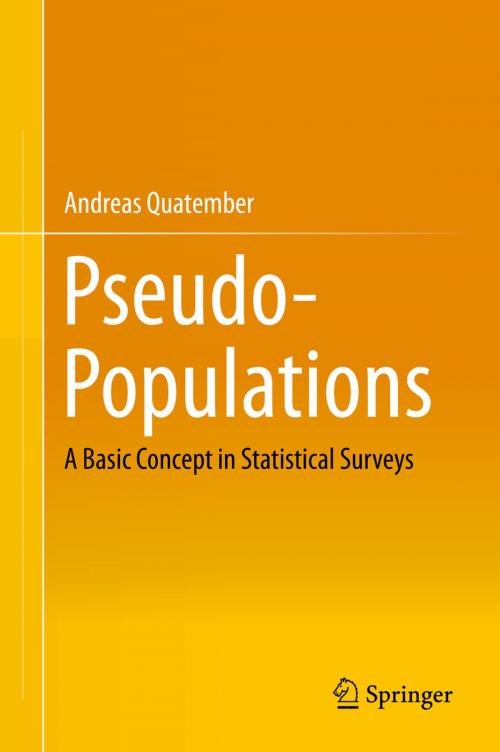Pseudo-Populations
A Basic Concept in Statistical Surveys
Nonfiction, Social & Cultural Studies, Social Science, Statistics, Science & Nature, Mathematics| Author: | Andreas Quatember | ISBN: | 9783319117850 |
| Publisher: | Springer International Publishing | Publication: | September 16, 2015 |
| Imprint: | Springer | Language: | English |
| Author: | Andreas Quatember |
| ISBN: | 9783319117850 |
| Publisher: | Springer International Publishing |
| Publication: | September 16, 2015 |
| Imprint: | Springer |
| Language: | English |
This book emphasizes that artificial or pseudo-populations play an important role in statistical surveys from finite universes in two manners: firstly, the concept of pseudo-populations may substantially improve users’ understanding of various aspects in the sampling theory and survey methodology; an example of this scenario is the Horvitz-Thompson estimator. Secondly, statistical procedures exist in which pseudo-populations actually have to be generated. An example of such a scenario can be found in simulation studies in the field of survey sampling, where close-to-reality pseudo-populations are generated from known sample and population data to form the basis for the simulation process.
The chapters focus on estimation methods, sampling techniques, nonresponse, questioning designs and statistical disclosure control**.**
This book is a valuable reference in understanding the importance of the pseudo-population concept and applying it in teaching and research.
This book emphasizes that artificial or pseudo-populations play an important role in statistical surveys from finite universes in two manners: firstly, the concept of pseudo-populations may substantially improve users’ understanding of various aspects in the sampling theory and survey methodology; an example of this scenario is the Horvitz-Thompson estimator. Secondly, statistical procedures exist in which pseudo-populations actually have to be generated. An example of such a scenario can be found in simulation studies in the field of survey sampling, where close-to-reality pseudo-populations are generated from known sample and population data to form the basis for the simulation process.
The chapters focus on estimation methods, sampling techniques, nonresponse, questioning designs and statistical disclosure control**.**
This book is a valuable reference in understanding the importance of the pseudo-population concept and applying it in teaching and research.















